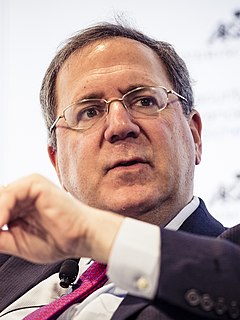A Quote by Cass Sunstein
From the standpoint of democratic legitimacy, it's a problem if half the electorate, or close to it, declines to vote, not least because they may not feel much of a stake in the whole process.
Quote Topics
Related Quotes
The average man votes below himself; he votes with half a mind or a hundredth part of one. A man ought to vote with the whole of himself, as he worships or gets married. A man ought to vote with his head and heart, his soul and stomach, his eye for faces and his ear for music; also (when sufficiently provoked) with his hands and feet. If he has ever seen a fine sunset, the crimson color of it should creep into his vote. The question is not so much whether only a minority of the electorate votes. The point is that only a minority of the voter votes.
Further, democratic negotiators, or foreign negotiation specialists accepted to assist in the negotiations, may in a single stroke provide the dictators with the domestic and international legitimacy that they had been previously denied because of their seizure of the state, human rights violations, and brutalities. Without that desperately needed legitimacy, the dictators cannot continue to rule indefinitely.
There's only one problem that bothers me. And that's something my theorem [ of Impossibility] really doesn't cover. In my theorem I was assuming people vote sincerely. The trouble with methods where you have three or four classes, I think if people vote sincerely they may well be very satisfactory. The problem is the incentive to misrepresent your vote may be high.
I think the Democratic electorate is similarly very energized. In both cycles we have new folks coming into the system who had previously been outside of the system, who may not even be Democrats. In both cycles we have a very well-known candidate who understands the process and a candidate who had to learn the rules.




































